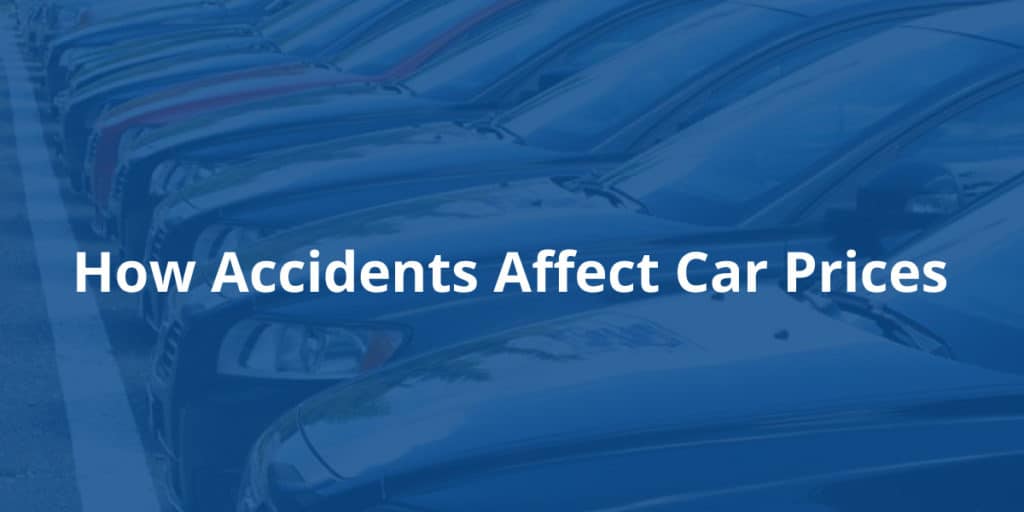
Let’s say you’re involved in a minor accident that wasn’t your fault but still inflicted thousands of dollars in damages. Your insurance company is going to cover the repair costs, but what many car owners forget about is how you won’t necessarily be able to cover the now diminished value of your vehicle.
Our team of attorneys is constantly dealing with car accident cases, and our track record proves our consistent success in terms of helping clients receive their rightful compensation from insurance companies and private, at-fault parties.
But we also understand that the effects of car accidents don’t necessarily end when the case is closed and you’ve received compensation, and that’s because your vehicle’s value will potentially see detrimental decline years down the road.
We’ve created this page to help you better understand history reports and how they affect car value, how to file diminished value claims, and have an overall better understanding of how state insurance laws can help you sell your car that was in an accident.
Many drivers are surprised by how much their vehicle’s value will drop after an accident, even when the accident wasn’t their fault. Auto insurance companies often fall short of fully covering people in these types of situations, but it might not be recognizable until you’re ready to sell your car.
Vehicle history reports on sites like Carfax will have previous accidents reported for potential buyers to view, and these reports will often work against car owners even after all necessary repairs have been made.
This typically happens when people try to sell their used cars to dealers who considerably knock down the trade-in value in order to protect their own profit margins.
Putting it simply, any similar model to your car that wasn’t in a wreck is going to have much higher resale value. Dealers many times will cut about 10-30% off a trade, so if your car is valued at $20,000 undamaged then an $18,000 offer would be pretty much par for the course when trading it in post-accident.
Diminished value claims are one of the main ways that drivers can get some kind of recourse for the deficiency between a vehicle’s value before an accident and after repairs are completed. So many dealers will automatically discount a car’s value when a Carfax Report shows an accident history, so it’s crucial to make sure you are obtaining compensation for this difference in value that wasn’t necessarily your fault to begin with.
So if your estimated book value was something like $20,000 without an accident, but was appraised for $15,500, then there is a $4,500 deficiency that a diminished value claim may be able to help you recoup.
You’ll have to contact the at-fault party’s insurance company and request compensation for this type of deficiency in order to file a diminished value claim, but don’t expect the insurance company to quickly write you a check. You’re going to need to present a copy of your most recent appraisal and hard data that backs up your request. This can include a clear demonstration of your car’s value based on information found on online car value sites.
This is where our car accident expertise can readily assist you because many times auto insurance companies are going to be difficult in terms of negotiation and paying your calculated, full deficiency. Some car owners think that it’s perfectly fine to negotiate and at least get some of the deficiency recovered, but if you have persistent legal representation helping you throughout this process you’ll have a much better chance at receiving your full and rightful deficiency compensation.
If the insurance company refuses to compensate you then we’ll take them to small claims court and make sure they do their due diligence to assist you in your vehicle transition.
These types of financial setbacks after an accident are only part of the toll that car accidents have on owners. The physical and emotional effects of car accidents are also very important to recognize in terms of what your insurance policy covers.
You should try to familiarize yourself with your insurance agent and policy details, as well as your state’s insurance laws too. There are several loopholes out there that can end up costing you after all types of accidents, so you’re always going to want to utilize the necessary legal assistance that can close up those loopholes and lower your risks of deficiency losses.
If you were in a car accident that wasn’t your fault then you should be compensated for the difference in your car’s value when you’re ready to sell it. The law firm of DuBoff & Associates can review your case and insurance information to ensure that you are getting the very best deal once you are ready to move on to a different vehicle.
Contact our office today to set up an appointment to review your car accident claim.
Filed Under: